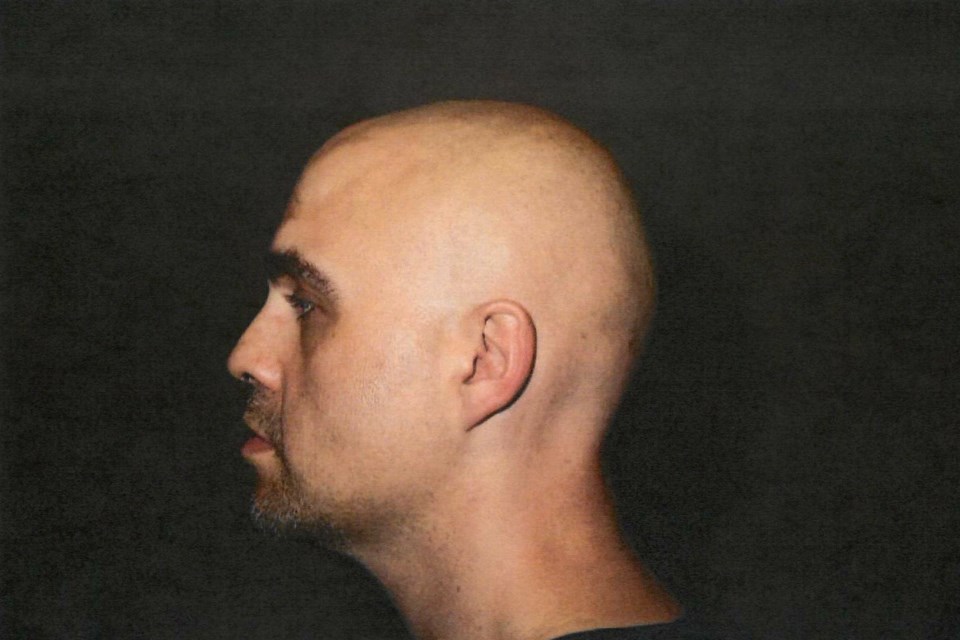WINNIPEG — Jeremy Skibicki killed four women and knew it was wrong but did it because he was under a psychotic delusion that he was on a mission from God, a Winnipeg murder trial has heard.
Dr. Sohom Das, a forensic psychiatrist from the United Kingdom, testified the killings came after years of violent acts by Skibicki stemming from mental illness.
"I believe the delusions and the psychotic symptoms caused by schizophrenia directly motivated those killings," Das, testifying for the defence, told court Tuesday.
"He believed in his mind that he was on a mission from God. He felt compelled to carry out the killings."
Skibicki, 37, has pleaded not guilty to first-degree murder in the 2022 slayings of the four Indigenous women in Winnipeg: Rebecca Contois, 24; Morgan Harris, 39; Marcedes Myran, 26; and an unidentified woman an Indigenous grassroots community has named Mashkode Bizhiki'ikwe, or Buffalo Woman.
The Crown has so far presented evidence from video surveillance, DNA, computer files and witnesses to argue Skibicki had the mental capacity and awareness to plan and cover up the slayings.
Prosecutors say the killings were racially motivated and Skibicki preyed on the victims at homeless shelters.
The trial has heard Skibicki assaulted the women, strangled or drowned them and disposed of their bodies in garbage bins in his neighbourhood. Myran and Contois were dismembered.
Skibicki’s lawyers admit he killed the women but are arguing he should be found not criminally responsible due to mental illness.
Das said he interviewed Skibicki twice and studied the killer's medical files, criminal record and social media posts.
Based off their interactions, Das told court Skibicki knew what he was doing at the time was legally wrong but he lacked the capacity to know that it was morally wrong.
Court heard Skibicki has a history of mental illness, including depression, borderline personality disorder and thoughts of suicide.
During cross-examination, prosecutor Chris Vanderhooft said no other psychiatrist has written a report diagnosing Skibicki with schizophrenia even though the man was hospitalized about 20 times.
"If there were frequent flyer points for going to a hospital, he'd be going on a big trip," said Vanderhooft.
The closest diagnosis was of Skibicki having schizoid personality traits, which is a form of anti-social behaviour.
Court heard Skibicki was first assessed in his early teens after his parents reported aggressive outbursts and an incident where he put his arms around a female cousin's throat while sleepwalking.
Throughout his teen years, Skibicki took antidepressants but still struggled with violent episodes and narcissistic personality traits, said Das.
As an adult, while being treated for self-harm and overdoses, Skibicki told paramedics that he had depression, schizophrenia, bipolar disorder and anxiety.
Das said one report details how Skibicki stabbed himself 20 times with a fork to his chest. He told medical staff he had stopped taking his prescription medication.
During one assessment with Das, Skibicki said he believed he was on a "mission from God, and God was controlling his actions" at the time he killed the four women.
The trial previously heard Skibicki's police interrogation, when he said it was his choice to kill the women and he was not driven by God.
Das said it wouldn't be unusual for Skibicki to provide contradictory statements, because people dealing with psychosis are not often logical.
"Or he's making it up. That's an alternate hypothesis," Vanderhooft countered.
The prosecutor also questioned Das about whether he considered other motives for the killings, including Skibicki's alleged desire to control women or if he had paraphilia, which is a form of abnormal sexual behaviours or impulses.
The trial has also heard Skibicki committed "vile, sexual acts" on the women's bodies before disposing of them.
Das testified Skibicki told him he committed the acts because he believed it would "sanctify" their souls.
The psychiatrist also said he considered whether Skibicki was attempting to fake a mental illness.
He determined it didn't appear Skibicki was trying to persuade him and that Skibicki was indifferent to his psychotic beliefs.
The federal government has a support line for those affected by the issue of missing and murdered Indigenous women and girls: 1-844-413-6649. The Hope for Wellness Helpline, with support in Cree, Ojibway and Inuktitut, is also available to all Indigenous people in Canada: 1-855-242-3310.
This report by The Canadian Press was first published June 4, 2024.
Brittany Hobson, The Canadian Press


